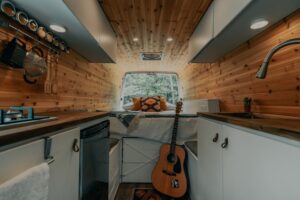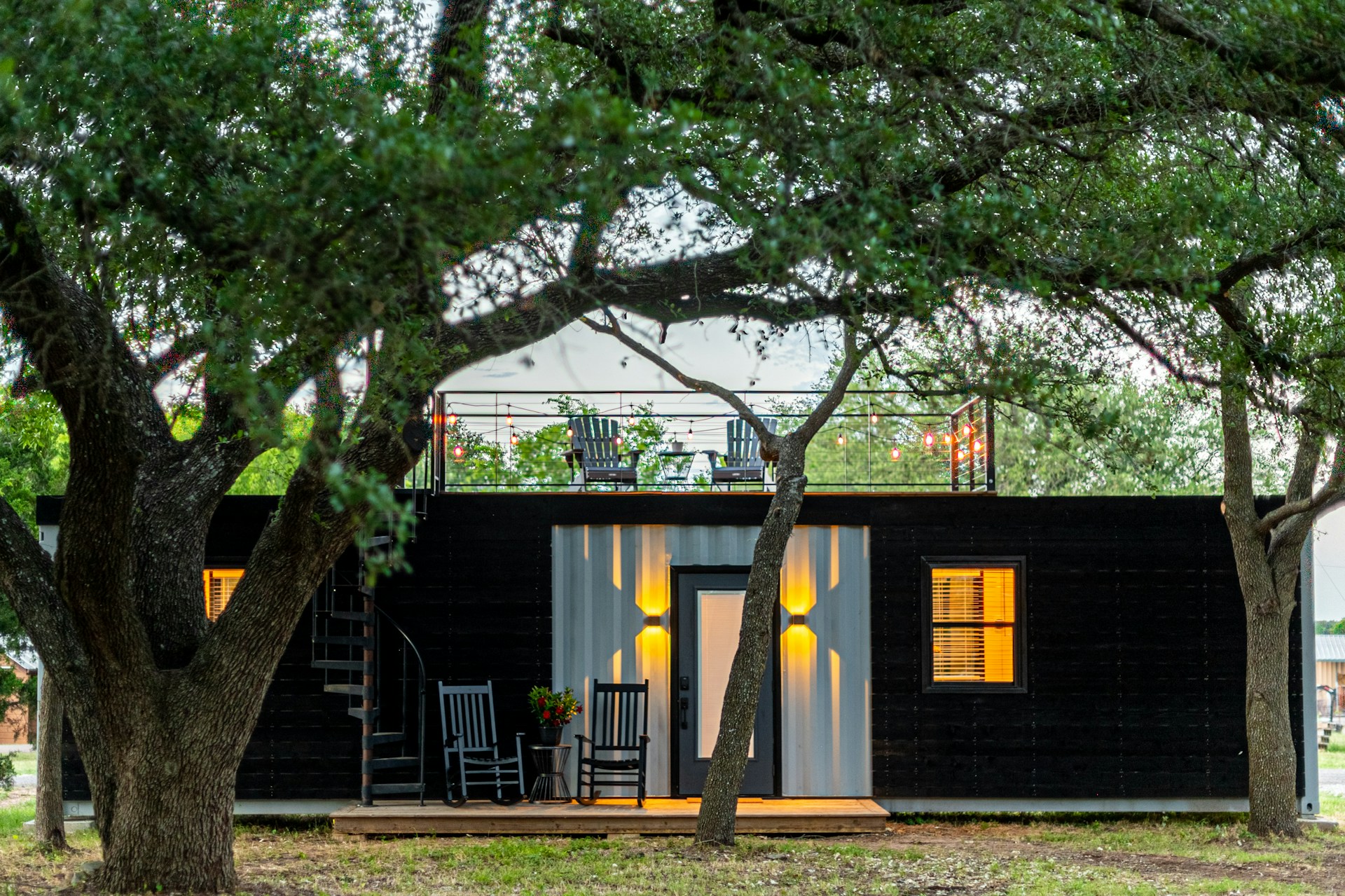For true nature lovers, there’s nothing quite like the feeling of being immersed in the great outdoors. If you’re craving a connection with nature and dreaming of a cozy retreat that brings you closer to the earth, then tiny house living might just be perfect for you. But what makes tiny houses the ideal choice for nature lovers? For one, they allow you to live a simpler, more sustainable lifestyle with a smaller environmental footprint. With the right tips for house plans for tiny homes, you’ll feel the seamless blend your home can get with its natural surroundings, making it feel like an extension of the outdoors. So, why don’t we take a look at some tiny house plans that are perfect for true nature lovers?
Treehouse-Inspired
 Picture yourself perched high among the trees, with branches swaying gently in the breeze around you. Treehouse-inspired tiny house plans offer a whimsical and enchanting retreat for all true nature lovers seeking a unique living experience. These designs often feature elevated platforms, wrap-around decks, and huge windows that provide breathtaking views of the surrounding forest canopy. With their rustic charm and close connection to nature, treehouse-inspired tiny homes blend seamlessly into their natural surroundings. Reclaimed wood, as one of the best eco-friendly items, further enhances the aesthetics and practicality of these dwellings. Whether nestled in a dense woodland or overlooking a tranquil meadow, a treehouse-inspired tiny house is sure to ignite your sense of adventure and wonder.
Picture yourself perched high among the trees, with branches swaying gently in the breeze around you. Treehouse-inspired tiny house plans offer a whimsical and enchanting retreat for all true nature lovers seeking a unique living experience. These designs often feature elevated platforms, wrap-around decks, and huge windows that provide breathtaking views of the surrounding forest canopy. With their rustic charm and close connection to nature, treehouse-inspired tiny homes blend seamlessly into their natural surroundings. Reclaimed wood, as one of the best eco-friendly items, further enhances the aesthetics and practicality of these dwellings. Whether nestled in a dense woodland or overlooking a tranquil meadow, a treehouse-inspired tiny house is sure to ignite your sense of adventure and wonder.
Eco-Cottage
With its sustainable design and natural materials, an eco-cottage offers a harmonious blend of comfort and environmental consciousness. From reclaimed wood floors to energy-efficient appliances, every detail is thoughtfully crafted to minimize impact on the planet. In an eco-cottage, sustainability isn’t just a buzzword – it’s a way of life. Rainwater harvesting systems, composting toilets, and well-integrated solar panels are simply some of the best features that make these homes truly eco-friendly. Embrace simple living with style in an eco-cottage that not only reduces your carbon footprint but also brings you closer to nature in ways you never imagined possible.
Off-Grid Cabin Plan
With its rustic charm and sustainable design, this cabin is simply perfect for those seeking an escape from the hustle and bustle of city life. Designed to be self-sufficient, this off-grid cabin allows you to live off the land with solar panels for electricity, rainwater collection systems, and composting toilets. You can truly disconnect from modern amenities and reconnect with nature in its purest form. Surrounded by magical. Towering trees and lush greenery, this cabin provides a peaceful sanctuary where you can get rid of all your weekly stress, recharge, and appreciate the beauty of the outdoors. This off-grid cabin plan caters to all nature lovers looking for a tranquil escape.
Glass House
 With floor-to-ceiling windows, this design invites the surrounding environment to become part of your living space. Feel like you’re living in harmony with nature while still enjoying modern amenities within a sleek and minimalist interior. Whether it’s nestled in a lush forest or overlooking a serene lake, the Glass House allows you to immerse yourself fully in the sights and comforting sounds of the great outdoors from the comfort of your own home. No matter which design speaks to you, upgrading your outdoor living space can truly enhance your connection with nature and provide a peaceful retreat away from the stresses of modern life. So why not take the plunge and invest in a tiny house plan that will allow you to fully immerse yourself in the beauty of the great outdoors?
With floor-to-ceiling windows, this design invites the surrounding environment to become part of your living space. Feel like you’re living in harmony with nature while still enjoying modern amenities within a sleek and minimalist interior. Whether it’s nestled in a lush forest or overlooking a serene lake, the Glass House allows you to immerse yourself fully in the sights and comforting sounds of the great outdoors from the comfort of your own home. No matter which design speaks to you, upgrading your outdoor living space can truly enhance your connection with nature and provide a peaceful retreat away from the stresses of modern life. So why not take the plunge and invest in a tiny house plan that will allow you to fully immerse yourself in the beauty of the great outdoors?



 If you care about
If you care about 



 A CASp will understand which criteria are relevant to your
A CASp will understand which criteria are relevant to your  A handicap access inspection certification (Certification ) is a list of reviews, not a certification of compliance. A Certificate must be issued to you using a CASp review report whether your facility is decided to satisfy applicable construction-related accessibility criteria. Business/facility owners must take no additional certification provided by a CASp aside from a Certification purchased from the State Architect Department.
A handicap access inspection certification (Certification ) is a list of reviews, not a certification of compliance. A Certificate must be issued to you using a CASp review report whether your facility is decided to satisfy applicable construction-related accessibility criteria. Business/facility owners must take no additional certification provided by a CASp aside from a Certification purchased from the State Architect Department.